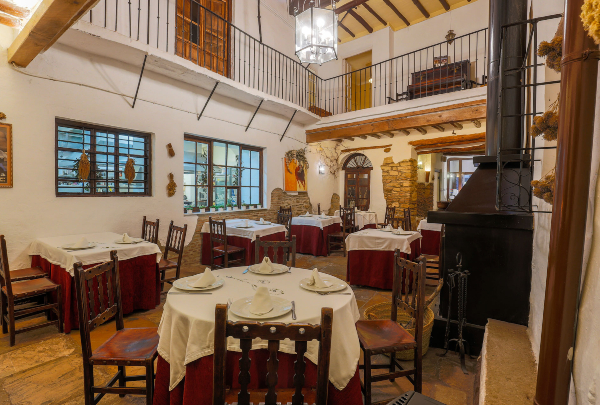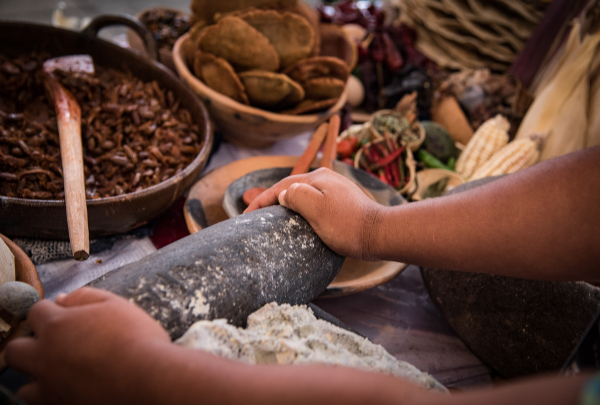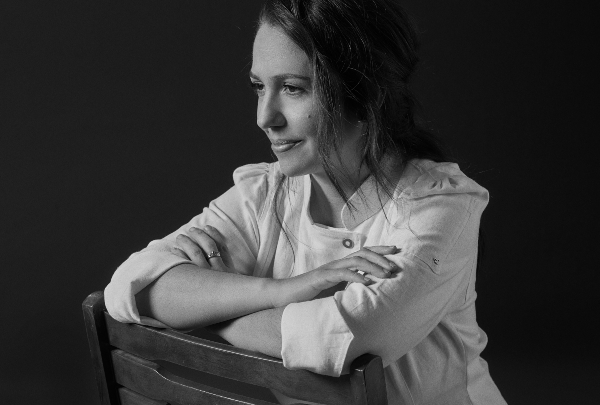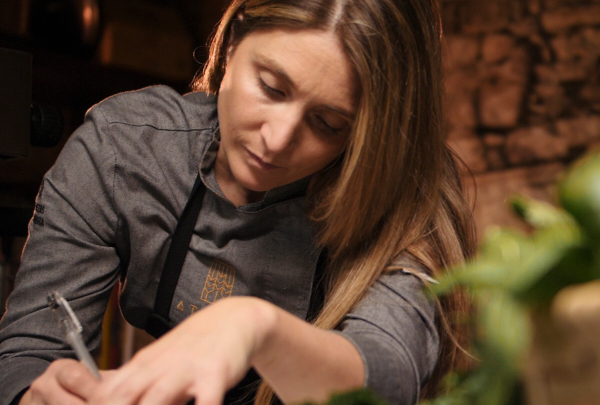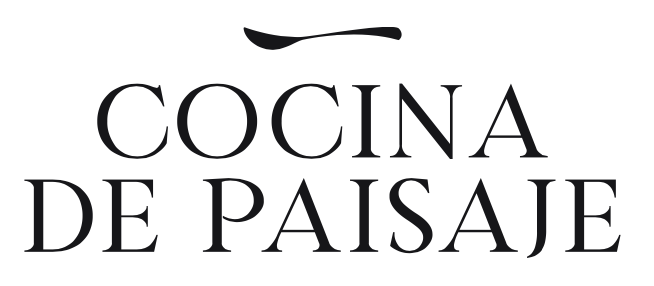Interview
“The woman's role is essential for an understanding of the past and future in gastronomy”
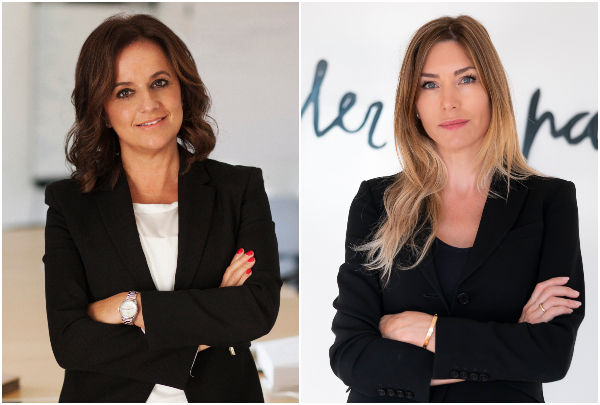
Marián Rodríguez (Cenador de Amós) y Amaranta Rodríguez (Culler de Pau)
Behind a great man there is always a great woman. “Behind? That's sexist. You must mean 'beside'”. We talked about the concept of women in gastronomy with Marián Martínez and Amaranta Rodríguez, managers and maîtres at Cenador de Amós*** and Culler de Pau**. Oh, and they're also the partners of chefs Jesús Sánchez and Javier Olleros.
Marián Martínez and Amaranta Rodríguez are friends, and they live in the north of the peninsula. Away from the glare of media attention, they are the hands - and the heads - shaping the destiny outside the kitchen at two of the country's best restaurants, Cenador de Amós*** and Culler de Pau**. Managers of their businesses and operators of the restaurant floor, they combine their activities and find time to be mothers and the happy partners of the respective chefs of the two restaurants, Jesús Sánchez and Javier Olleros. But they are not Mrs Sánchez and Mrs Olleros; they are Marián Martínez and Amaranta Rodríguez. Ahead of their participation in a round table at FéminAs next week, we sounded them out for a few dining room secrets.
Behind a great man ... we agree it's a sexist phrase, don't we?
Marián Martínez: The key word for detecting the sexism in this phrase, which purports to be a compliment, is the use of "behind", which should be "beside". In a way, it romanticises the fact that there are women working hard for the success of a man, without any kind of acknowledgement. It seems to be a reflection of the secondary role played by women in society over many years. It's a phrase I've heard myself on many occasions, said to me as a compliment. And although I'm aware that it was always said with the best intentions, I think we should pause to reflect on this kind of microsexism, in a bid to correct it and do away with it. In fact, there’s no great woman behind Jesús Sánchez – she’s at his side. Although he might have a more public perspective, we're really both behind, only this time "behind" has the proper meaning. We both complement each other and make our own contribution to the development of the other, and so success is always a shared success.
Amaranta Rodríguez: Of course it's sexist, and I also think, like all instances of sexism, it attempts to emphasise that the man is in the spotlight. A lot of people who know that I'm in charge of Javi's agenda and of managing things at Culler de Pau always say this to me. I don't know. I don't think I'm behind him - quite the contrary, in fact ... it's him who's behind me. Otherwise he'd be lost ... He rings me to find out what he has to do tomorrow or in a week's time, or whether he can go to something or other ... well ... (ha-ha-ha). What really happens is that beside a great man there's always a great woman, and vice-versa.
Among other functions, both of you work the floor, and your partners work in the kitchen. That's the most common setup. Why is it rarely the other way round?
Marián Martínez: That's true. It's the most common format, but there are always exceptions. This is the issue we've always debated, the presence of women in professional kitchens. Fortunately more and more women are now working in professional cuisine. A few names occur to me, and there are probably many more: Hellene Darrozze, Fina Puigdevall, Susi Díaz, Carme Ruscalleda … chefs who share cookery projects with their partners on the restaurant floor.
Amaranta Rodríguez: There are places where it isn't like that. For example, at D´Berto, in O Grove, three minutes from where I live, a shellfish shrine, Berto works the floor, and it's his sister Marisol who cooks. And there are many others who aren't even well known, many restaurants where couples and families open a bar or a restaurant, and the woman is in the kitchen, and the man works at the bar or in the dining room. The first restaurant you hit in O Grove is bound to fall into that category.
Does a relationship suffer when a couple work together?
Marián Martínez: A work/life balance with the same person is often a huge challenge. We've been doing it for almost 30 years. And I'd do it again.
Amaranta Rodríguez: No, absolutely not. In our case at least, it's been a boon. I was working office hours from 9:00 h to 18:00 h from Monday to Friday when we opened Culler de Pau. At first I kept my job, and helped out any way I could. It was such a drag. He had Tuesdays off, and me, Saturdays and Sundays, when we had most work. Since we started working together we understand each other much better. It's true that we talk about work a lot, but our profession is very intense, and it means long hours and many issues. It's very important for me to discuss employment issues with him. We go hand in hand, and I need his support. Javi knows lots of things, and I love talking to him. He's a very reflective, impartial person. I torture myself thinking about things, and he helps calm me down ...
From your perspective, how do you see the situation of women in gastronomy?
Marián Martínez: It's improving with a lot of hard work. What I see is a lot more women in catering and maître schools, and that's the future. They'll take up the legacy, and I'm sure that shortly they'll change many things and will overcome some obstacles that other generations have encountered. This makes me hope that they’ll be successful, and that we'll start to hear women's names mentioned among successful chefs.
Amaranta Rodríguez: The woman's role in my neck of the woods is essential for an understanding of the past and future in gastronomy. It used to be that women here worked in the canning factories or gathering shellfish, many of them on mussel platforms, all over the primary sector in general. We have a lot of gastronomy there. But I do think we've reached a stage in which the female presence is being imposed, and I don't like that. It's obvious that more and more professional women are working in restaurant kitchens and floors. There weren't as many women at catering schools two years ago as there are today. This year at Culler, we've come up with as many women on the floor as men in a natural way. I get goosebumps seeing how Lara goes over the deliveries and how her orders echo around the kitchen. She's no-nonsense and organised ... I find it awesome. Or Ana, the maître, and her amazing workload, so disciplined, serious and resolute. I think that last point is a woman's quality.
You're speaking at FéminAs, a congress on gastronomy, women and the rural milieu. You qualify on all three criteria. What do you think of the congress? What's life like outside the big city?
Marián Martínez: I think this congress is the perfect scenario to keep moving forward and emphasise the added value of being in a rural environment, for it to be seen as a strength, not just an option for a visit at the weekend. I can only speak from my own personal experience: for us, living in a little village with a population of 300 like Villaverde de Pontones has been a project shared between partners, which gave some direction to our work in order to give meaning to our life. Life slows down outside the city. It gives you the chance to pause and take a different look at nature, be in contact with local producers, have your own vegetable plantation ... we're the first solar community in the gastronomy industry, and we'll be sharing the energy produced with local people within a radius of less than 500 metres (and that will cut their electricity bill by 20%).
I love feeling how the seasons change. I feel lucky for everything I have, and I give thanks for that every day. I'm still passionate about what I do and I see the beauty in my work, although there's no doubt that achieving a work/life balance is still a challenge. I miss spending more time with my daughters ...
Amaranta Rodríguez: I wouldn't change it for anything. It's marvellous to get up every morning and see the fields full of dew, and the sea beyond. We live above the restaurant, on the outskirts of a village with a population of 11,000, and I'm happy here. Where I grew up, and where I watch my children grow up. I'm happy that my children can go out and play on their own quite safely. You just go and take a look every so often to make sure everything's OK. We're very lucky in that we travel a lot, and that also gives us a balance which helps us with the rural environment ... but you have to realise that really we live where everyone wants to live on their holidays, or live out their retirement ...
If gastronomy hadn't crossed your path, you would be ...
Marián Martínez: I'd definitely have liked to study psychology. My younger daughter Marina, in fact, is studying psychology, and that makes me so proud. I can see myself in her and her concerns.
Amaranta Rodríguez: I'd be Amaranta Rodríguez. I'd work office hours from 9:00 h to 18:00 h, I'd go to the park with my children every afternoon, after dinner I'd watch a serial on TV, I'd go out to dinner and a few drinks with my friends at the weekends, and Sundays would be a downer because I'd have to be bright-eyed and bushy-tailed for Monday. I feel very lucky to be working at Culler de Pau. I'm happy every day of the week, and I'm very lucky to be working with my partner and to form half of a circle that is black and white. Which rolls towards infinity.

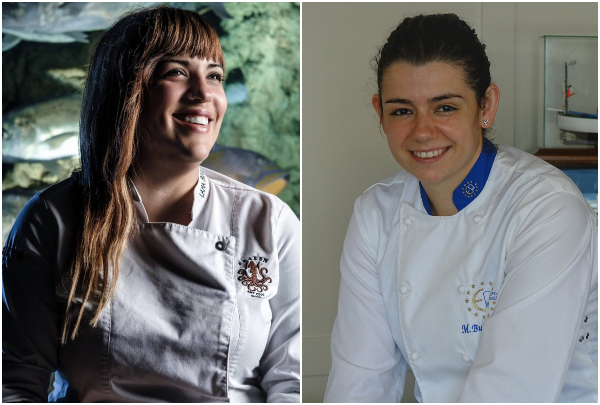
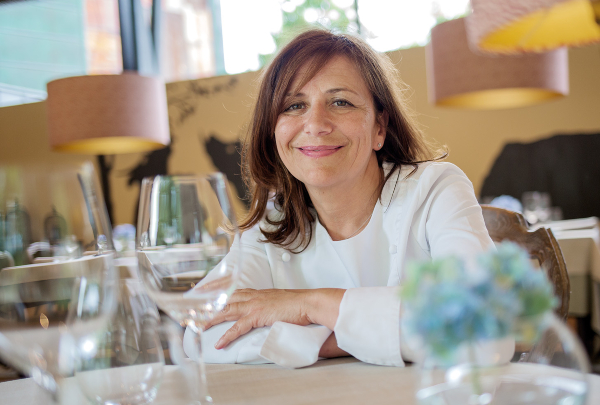
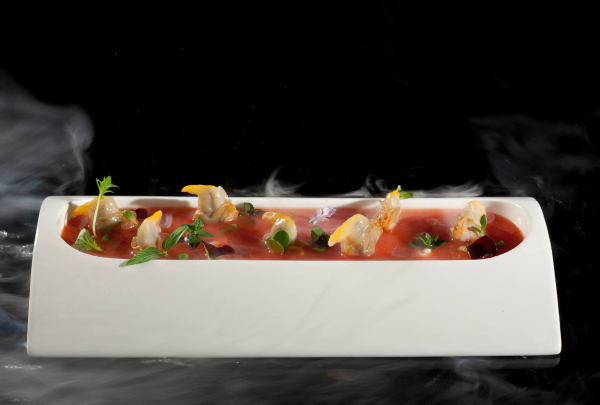
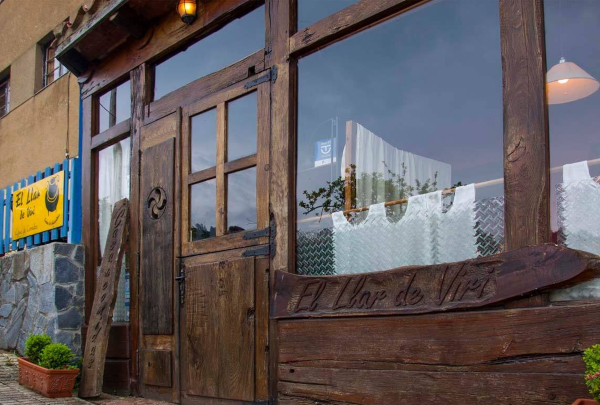
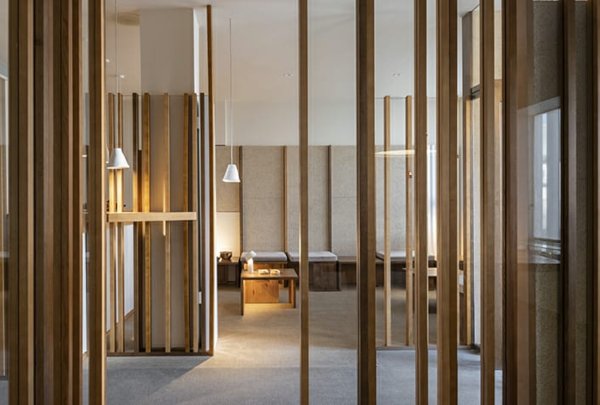
.jpg)
